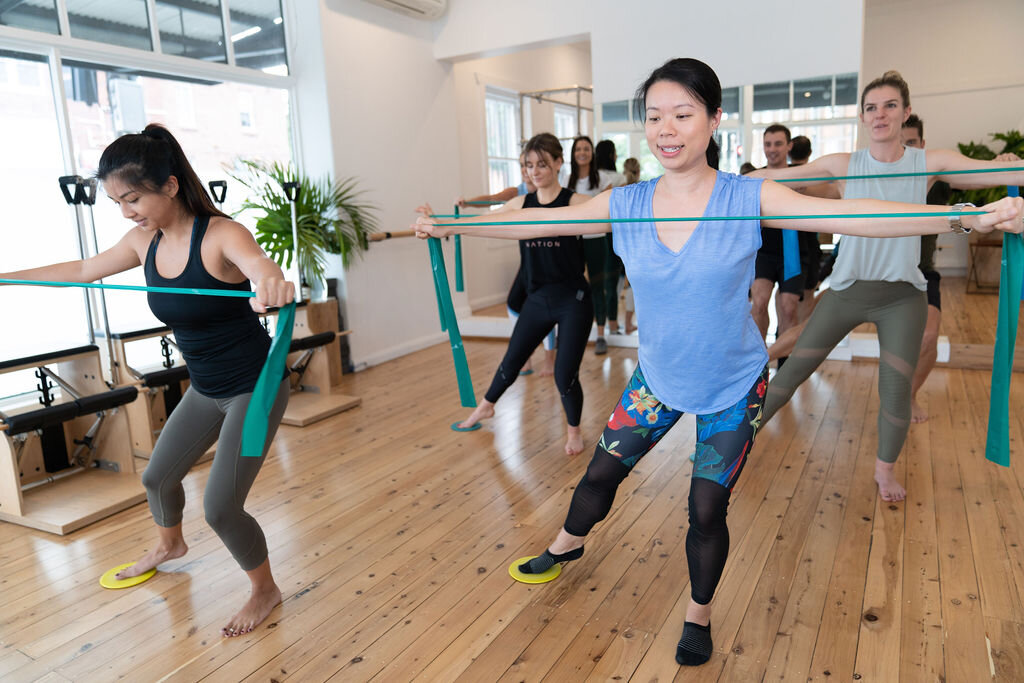BACK & PELVIC GIRDLE PAIN

Low Back & Pelvic Girdle Pain
Low Back/Pelvic Girdle Pain (LBP/PGP) affects one in four Australians.
At The Pelvic Studio (if our name doesn’t give us away - I don’t know what will!) we are experts in assessing and treating your unique back and pelvis.
We have the added skillset of not only assessing and treating externally but also assessing and treating internally! Via ultrasound or an internal examination we can assess your pelvic floor and deep hip muscles.
If your LBP/PGP has been recalcitrant and you never seem to be able to find the help that you’ve needed - The Pelvic Studio is the place for you! LBP/PGP can sometimes be driven by a weak and/or tight pelvic floor. If this element is not addressed properly, no matter how good your LBP/PGP management is, you may never see the gains that you’d expect -no matter how hard you work to get your back better! So you if you have discomfort below the waist and above the thighs, book in to see one of our friendly pelvic health physios!
Pregnancy Related Pelvic Girdle Pain
The prevalence of LBP/PGP is extremely common, with 50-84% of people experiencing it at some point in their pregnancy. It is often written off as one of those things you have to put up with during your pregnancy, but this is not true! There are lots of things you can do to help manage discomfort around your pelvis. Evidence supports exercise during pregnancy as it can significantly reduce Pregnancy-related Pelvic Girdle Pain (PRPGP) symptoms. At The Pelvic Studio we are experts at modifying exercise to suit your needs, we offer pregnancy group classes run by our physiotherapists with pregnancy specific exercises. Our classes are kept small to maximise the attention you receive and to ensure you maintain correct technique.
Physiotherapy is an essential component to managing LBP/PGP.
To manage your LBP/PGP an appointment with one of our physiotherapists would involve:
Assessment of posture, balance, muscle strength and muscle tightness. An internal vaginal examination may be recommended, as weakness or overactivity in the pelvic floor muscles can contribute to LBP/PGP. Approximately half of those with PGP will have overactive pelvic floor muscles.
Advice around modification of activities, adjustment of posture etc.
Manual therapy, which may include massage, mobilisations or muscle energy techniques.
Garment prescription, for example low back and pelvic girdle pregnancy support garments or SRC shorts/tights.
Home exercise program, which may include stretching, strengthening and relaxation exercises.
You can read more on Pregnancy Related Pelvic Girdle Pain on our blog here…
more information

Contributing factors to LBP/PGP
Poor biomechanics
Weak and/or tight muscles (glutes, hip flexors, elector spinae, quadratus lumborum & pelvic floor/obturator internus)
Previous pelvis or lower back pain
History of trauma to back or pelvis
Physically demanding work
Increased body mass index
Emotional distress
Pregnancy
Is it safe to keep exercising?
Yes, it’s safe and beneficial to stay active. Staying strong and mobile may in fact help your symptoms - research shows that people with LBP/PGP or PRPGP who exercise regularly have fewer days with pain, and fewer days off work. And of course, engaging the pelvic floor and core with physical activity is key to a happy back and pelvis.
You may need to make some modifications to avoid pain eg reducing/avoiding single leg activities, reducing the weight or duration of exercise, or even trying exercise in a pool to take some of the load off your pelvis. Talk to your physiotherapist if you are unsure of which exercises may be suitable for you.







